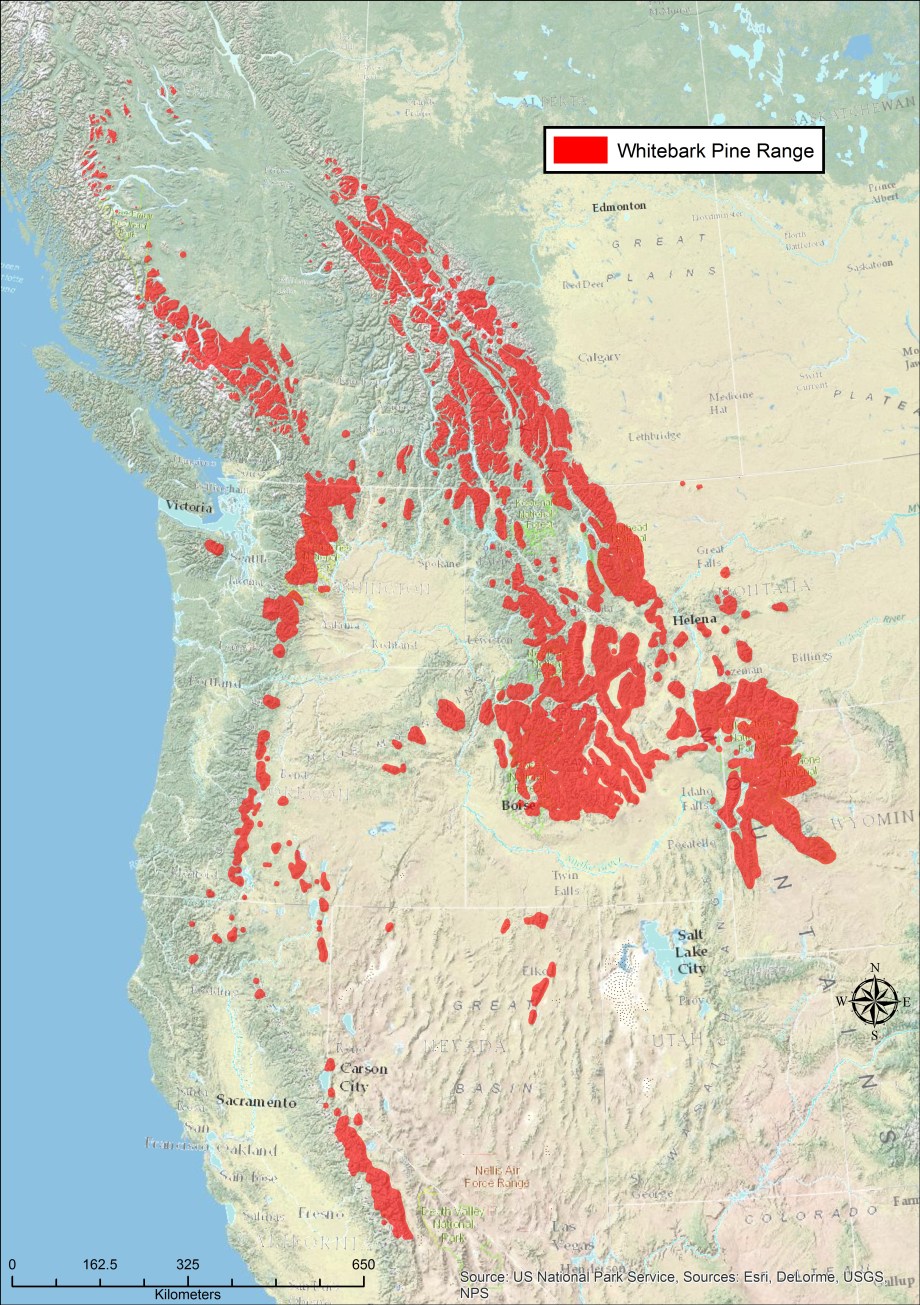Whitebark pine and other five-needle pines are in decline because of four main factors that interact to cause stress, leading to widespread disappearance from high altitude mountain forests in Canada and the United States. Mountain pine beetle and white pine blister rust, coupled with habitat loss from climate change and fire suppression, allow other evergreens to outcompete five-needle pines, causing their demise.
Whitebark support a diverse group of species. Red squirrels, Clark’s nutcrackers, and bears all utilize this important food source. Without them, the ecosystem might be quite different and could change species diversity.
Ensuring species survival involves studying mortality of current stands and identifying where whitebark can persist into the future. Maintaining and replanting resilient and healthy populations by selecting for rust resistant populations will allow populations to remain, but not without some work. The range of whitebark in the Crown will be significantly smaller than before.

For more info:
